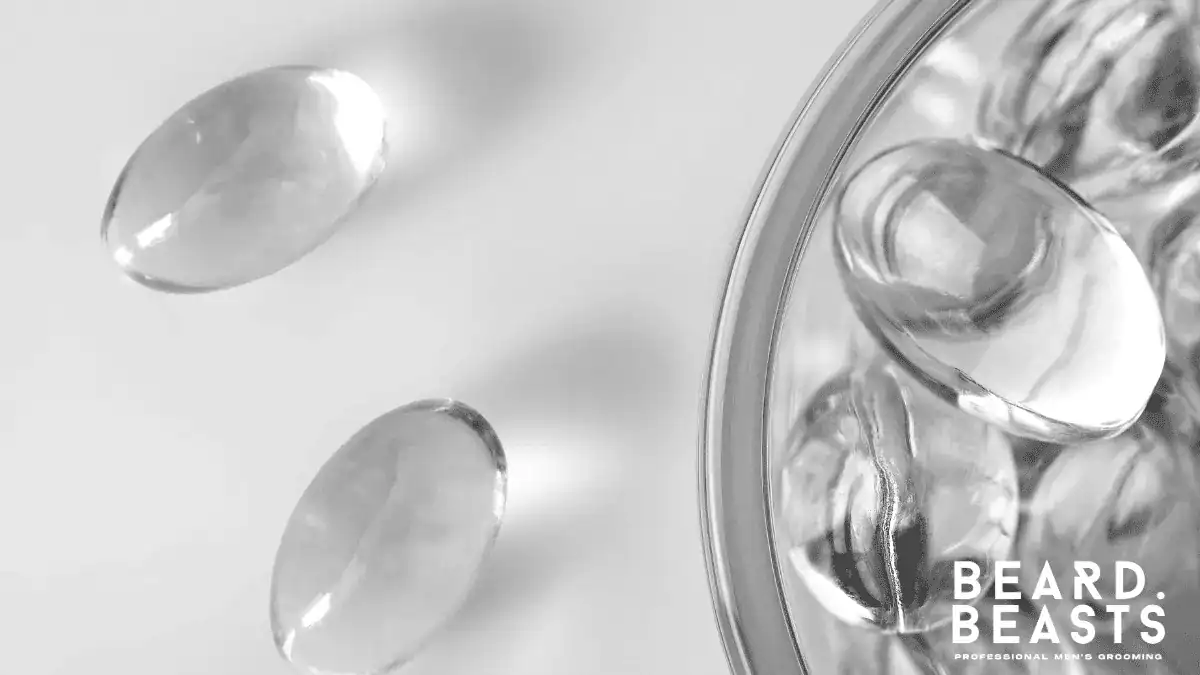If you’re serious about learning how to grow a full beard, you need more than just patience—you need a real plan.
It’s not as simple as letting it grow and hoping for the best.
Mastering how to grow a beard takes commitment, consistency, and knowing what actually works.
From fighting through the awkward patchy stage to building a grooming routine that fuels real growth, this guide breaks it all down—without the fluff.
No gimmicks. No myths. Just straight-up strategies that get you to the beard you’ve been chasing.
Start with Patience and a Plan (Not a Razor)
The first rule of learning how to grow a full beard? Leave it alone. Seriously—no trimming, no shaping, no second-guessing.

Growing a full beard is a game of patience. For the first 6 to 8 weeks, you need to let your facial hair grow completely untouched.
This gives your beard a chance to reveal its true growth patterns—where it’s thick, where it’s patchy, and where it needs time to catch up.
Most guys bail during this early phase because it looks uneven or feels itchy. Don’t be that guy. Every full, thick beard you admire went through this same awkward start.
Resist the urge to trim. Let it all come in first.
Expect uneven growth. Cheeks usually lag behind the chin—normal.
Stay consistent. Growth takes commitment, not constant second-guessing.
Growing a full beard isn’t about luck—it’s about pushing through when most guys give up.
Know Your Skin and Hair Type (This Stuff Matters)
When it comes to learning how to grow a full beard, understanding your skin and hair type isn’t optional—it’s essential.
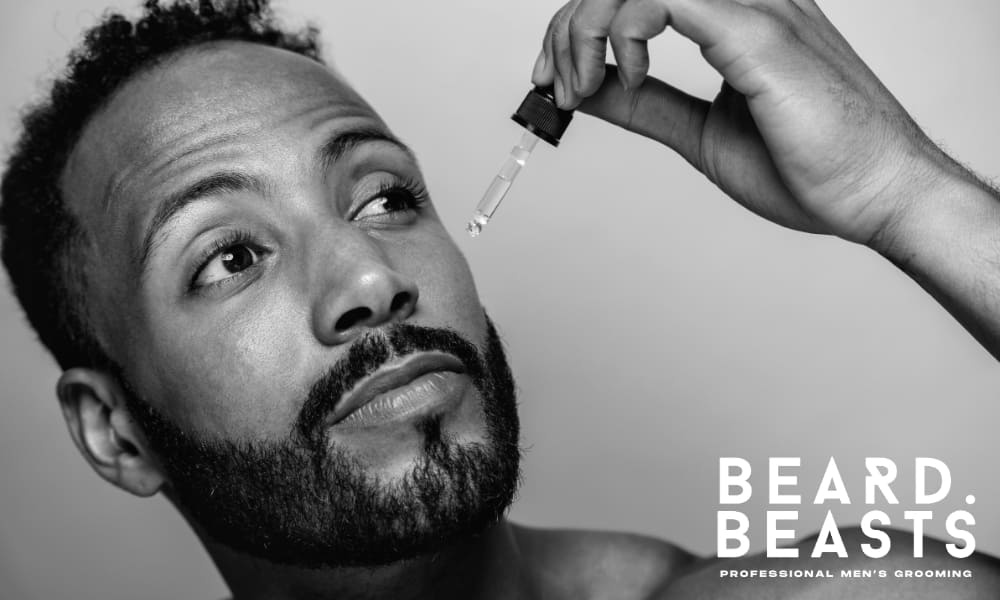
You can’t treat every beard the same. What works for one guy’s coarse, thick beard might wreck another guy’s finer, lighter hair. Getting real about what you’re working with sets the foundation for healthier, faster growth.
Skin Type Check
Your skin is the ground your beard grows from—treat it right if you want serious results.
- Dry Skin: You’ll need heavier hydration. Look for a beard oil rich in argan or jojoba.
- Oily Skin: Go for lightweight oils and wash more often to keep pores clean.
- Sensitive Skin: Choose unscented, natural products to avoid irritation.
Healthy skin = healthy beard. Ignore it, and you’re asking for itch, flake, and patchy frustration.
Hair Type Matters Too
Coarse, fine, patchy—know your hair type so you can grow smarter, not harder.
- Coarse and Thick Hair: Needs more conditioning and taming. Beard balms are your best friend.
- Fine or Light Hair: Benefits from lighter oils and strategic brushing to create volume and structure.
- Patchy Growth: Don’t panic. A patchy beard is normal early on. Stay patient and focus on strengthening what you have.
Your beard will only be as strong as the foundation you build underneath it.
Learning how to grow a full beard the right way means respecting your natural skin and hair. Work with what you’ve got—not against it—and you’ll start seeing real progress.
Set Real Goals—and Stick With Them
Growing a full beard isn’t just about letting it happen; it’s about knowing exactly what you’re aiming for.

If you don’t set clear goals and realistic expectations, you’ll end up frustrated—and possibly clean-shaven before you even had a chance to succeed.
Visualize Your Endgame
Picture the style you want. Is it rugged and bushy? Tightly groomed and professional?
Somewhere in between? Lock it in your mind—and then stay patient while you work toward it.
Respect the Timeline
Some guys can fill in a strong beard in a few months. For others, it takes six months or more.
Genetics, hormones, and care routines all play a role. The important thing is to keep showing up every day, even when the mirror isn’t giving you instant wins.
Power Through the Awkward Phase
Around week 3–5, most beards hit an awkward, messy, patchy stage. It’s tempting to trim it back or give up altogether.
Don’t. Stay committed, keep it clean, and ride it out. This phase separates the casual beard-dabblers from the guys who end up with legendary beards.
Stay Realistic—and Stay Proud
Your genetics will decide a lot—thickness, coverage, growth speed. Embrace your beard for what it can be, not what it can’t. There’s power in owning your natural style and making it look its absolute best.
When it comes to growing a full beard, it’s not just about growing hair—it’s about building confidence, patience, and serious presence.
Build the Routine: Growth Starts With Daily Action
When learning how to grow a full beard, habits beat hype—every time. Your daily routine can turn average growth into something worth noticing.
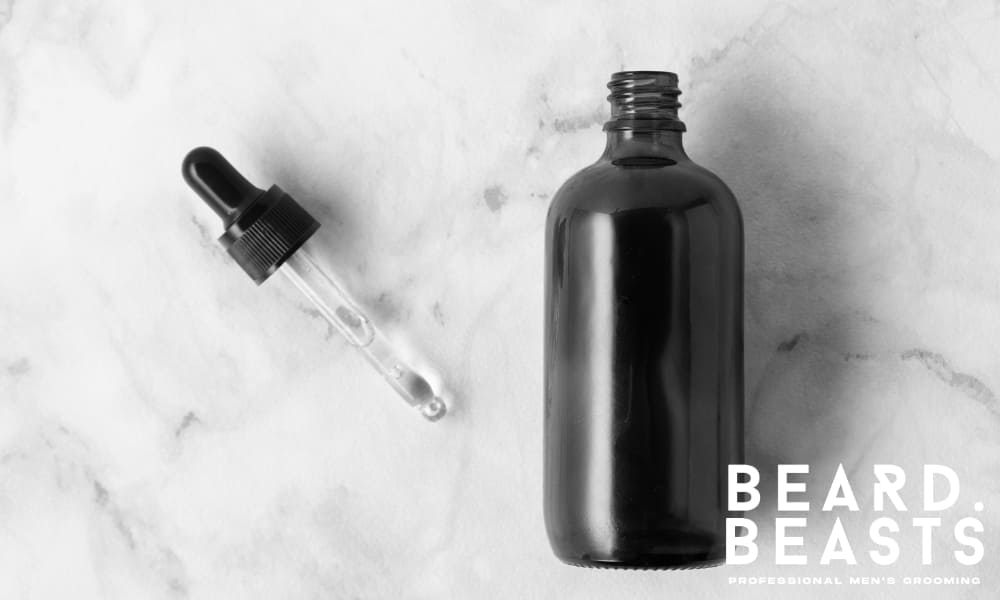
Let It Grow Without Interference
You’ve heard it before for a reason: stop trimming too soon. Let your beard grow untouched for the first 6–8 weeks so you can see its real potential. Don’t sabotage it before it starts.
Clean, Hydrate, and Protect
A clean beard grows better. Wash it 2–3 times a week with beard-specific wash, and use beard oil daily to keep skin hydrated, itch at bay, and hair strong.
Brush with Purpose
Brushing isn’t just grooming—it’s training. Use a boar bristle brush to distribute oils, exfoliate the skin, and guide your beard to grow in the right direction.
Fuel Growth from Within
No diet, no beard. Protein, B vitamins, zinc, and plenty of water lay the groundwork for serious gains. Feed your body right, and your beard follows.
Beard growth isn’t magic—it’s momentum. Lock in the right routine early, and real progress becomes inevitable.
Tackling the Itchy Phase Like a Pro
The itch phase is the test that separates casual attempts from real commitment. It sucks—but it passes. Survive it, and you’re on the way to something great.
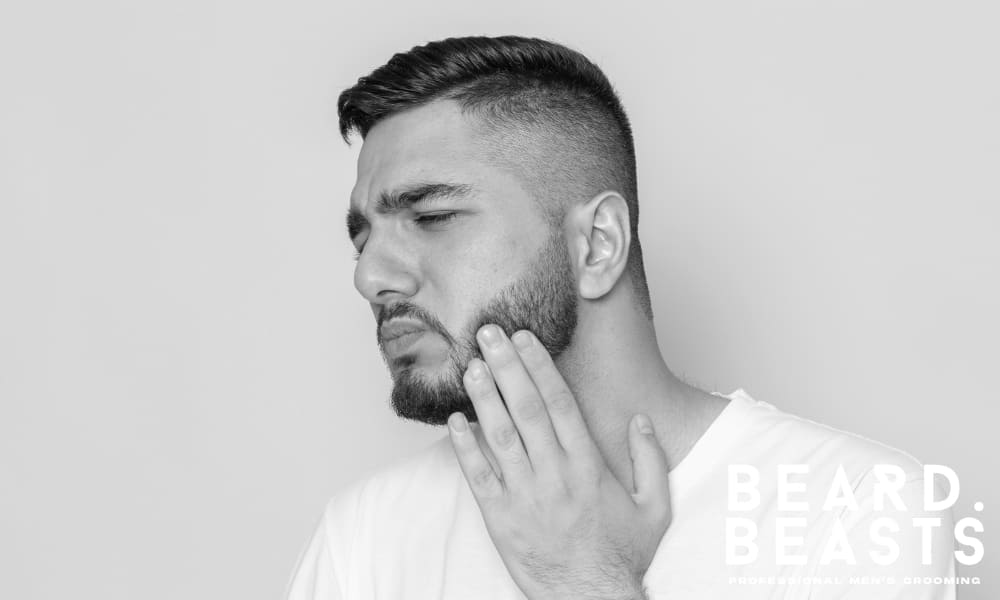
Moisturize Like a Ritual
Dry skin triggers the itch. Beard oil packed with natural hydrators like jojoba or argan calms irritation and builds healthier follicles underneath.
Wash Without Wrecking Your Skin
Clean your beard 2–3 times a week, but ditch harsh soaps. Gentle beard washes clear buildup without drying you out—key to keeping the itch under control.
Train Through the Discomfort
Brushing daily does more than tame your look—it boosts circulation, exfoliates skin, and shortens the itchy phase. Stay consistent.
Don’t Scratch—Stay Sharp
Scratching only makes it worse. Instead, pat, oil, and brush. Ride it out with discipline, and you’ll come out stronger—and way less irritated.
Every full beard you admire got through this phase. Power through, and greatness is on the other side.
Fuel Growth from the Inside Out
You can’t out-oil or out-brush a bad diet—growth starts from what’s happening inside your body.
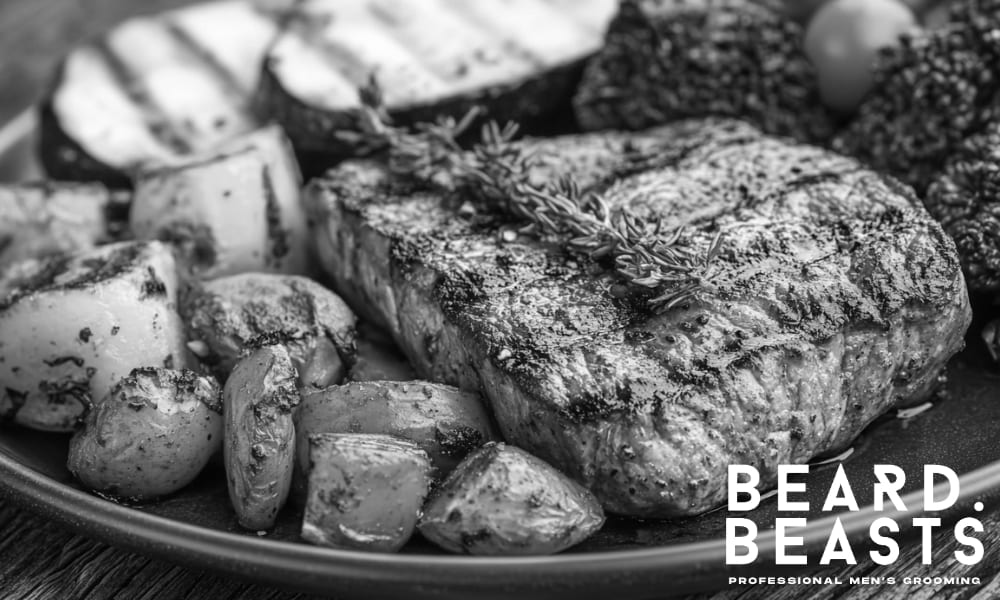
Prioritize Protein First
Hair is made of keratin, a protein your body makes from the food you eat. Load up on lean meats, eggs, fish, nuts, and legumes to give your beard the raw material it needs to grow strong and thick.
Get Your Vitamin Game Tight
B vitamins (especially biotin), vitamin D, zinc, magnesium, and iron are critical for strong beard growth. Missing these slows down your results. Pack your meals with greens, fruits, whole grains, and healthy fats to cover your bases naturally.
Stay Hydrated Like It’s a Job
Drink plenty of water daily to keep your skin hydrated, your follicles healthy, and your beard hair softer and stronger. Hydration is one of the simplest but most overlooked beard growth hacks.
Cut the Junk That Slows You Down
Limit processed foods, cut back on sugar, and ditch habits like smoking that restrict blood flow and hurt hair health. Everything you put in your body is either helping your beard—or hurting it.
If you want to dominate how to grow a full beard, stop treating your body like an afterthought. Fuel it right, and your beard will finally start living up to its full potential.
Exercise, Sleep & Stress: The Beard Trinity
Learning how to grow a full beard isn’t just about what you put on your face—it’s about how you live. Your body’s ability to grow thick, healthy facial hair is deeply connected to how you move, rest, and manage stress.

Move Like You Mean It
Daily exercise boosts blood flow, delivering vital nutrients straight to your hair follicles. It also elevates testosterone naturally, which is a huge factor in stronger, faster beard growth.
Prioritize Quality Sleep
During deep sleep, your body releases growth hormones and repairs cells, including those responsible for beard development. Aim for 7–9 solid hours every night to give your beard the recovery time it needs.
Kill the Stress Before It Kills Your Growth
Find what calms you: lifting weights, cold showers, meditation, music, whatever works. Lowering your stress levels isn’t just good for your mind—it’s vital for growing the full beard you want.
If you want to master how to grow a full beard, you’ve got to stop treating your body like an afterthought. Move with purpose, sleep like it matters, and keep your stress in check—and your beard will reward you.
Groom It to Grow It
If you’re serious about this beard journey, grooming isn’t just maintenance—it’s fuel for faster, thicker growth. Smart grooming strengthens your beard, keeps it healthy, and shapes it into something worth showing off.
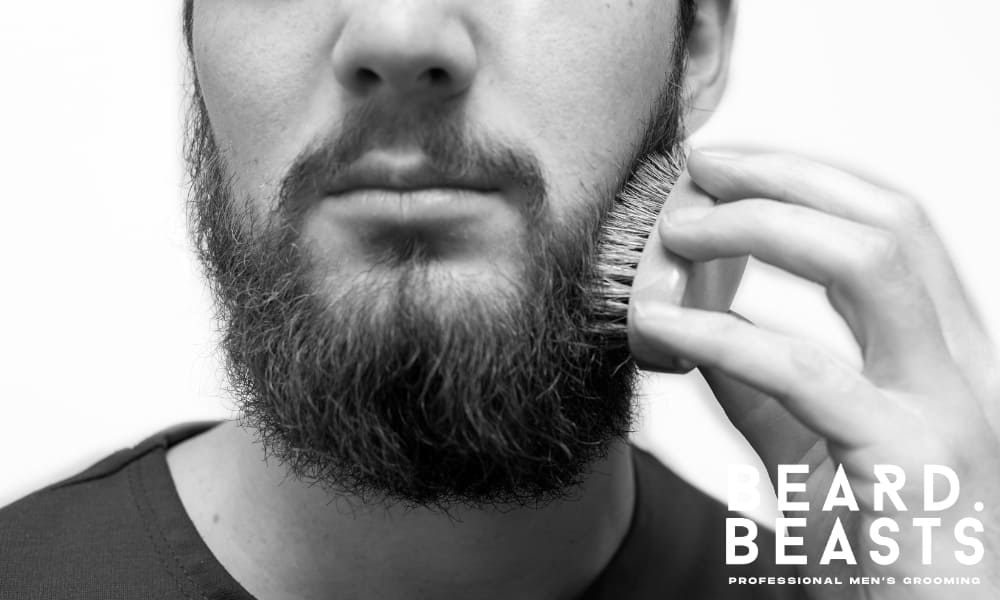
Trim Without Killing Progress
Once you hit 6-8 weeks of full growth, you can start lightly shaping the edges. Clean up stragglers, define the neckline, and sharpen the cheek lines without hacking away at your bulk.
Use the Right Tools for the Job
Invest in a high-quality beard trimmer with adjustable guards. Pick up sharp beard scissors for mustache detailing and stray hairs. Having the right tools gives you control without damaging your beard’s momentum.
Brush and Comb Daily
Brushing and combing help distribute natural oils, exfoliate the skin, detangle knots, and train your hair to grow downward, not outward. Skip this step, and you’ll be fighting an unruly mess later.
In the journey of how to grow a full beard, smart grooming isn’t optional—it’s the move that separates a patchy mess from a beard that demands respect.
Selecting the Right Grooming Tools and Products
When you’re serious about beard growth, every tool and every product you use either helps your beard thrive—or holds it back. It’s time to gear up with the right stuff.

Beard Oil and Beard Balm
Beard oil keeps your skin and hair healthy, soft, and itch-free. Balm steps it up by offering hydration plus light hold for styling and shaping. Get both in your toolkit and use them daily.
Beard Wash and Conditioner
Ordinary shampoo strips your beard of vital oils. Use a beard-specific wash 2–3 times a week, and follow up with a nourishing beard conditioner to keep your beard soft, strong, and easier to manage.
Brush and Comb with a Purpose
Use a boar bristle brush to distribute oils and exfoliate skin. Follow up with a quality wood beard comb to shape and detangle. Brushing and combing aren’t optional if you want your beard growing the right way.
Invest in Quality—It Pays Off
Don’t cheap out. High-quality trimmers, scissors, brushes, and oils will outperform bargain-bin stuff every time—and make a real difference in how your beard looks and feels.
Choosing the right gear is a non-negotiable part of learning how to grow a full beard. Get the tools that make growth, grooming, and styling easier—and your beard will show it.
Advanced Tips for Growing a Full, Thick Beard
If you’re pushing to master how to grow a full beard that’s thicker, fuller, and stronger, it’s not just about what you do—it’s about what you do next. Here’s how to take your beard gains even further.

Bring in the Power of Natural Oils
Oils like eucalyptus, rosemary, and peppermint are known for boosting circulation and promoting healthier hair growth. Mix a few drops into your beard oil or find products that already include them to give your beard a natural edge.
Biotin: The Beard Booster You Can’t Ignore
Biotin is a B-vitamin that strengthens hair and encourages growth. A high-quality biotin supplement, paired with a solid diet, can help speed up your beard-building efforts.
Feed Your Beard Healthy Fats
Omega-3 fatty acids from fish, flaxseeds, and walnuts strengthen hair follicles and keep your beard hair strong and hydrated from the inside out. Don’t skip the fats if you want maximum thickness.
Stay Consistent, Even When It Feels Slow
There will be weeks where it feels like nothing’s happening. That’s normal. Keep following your routine, stay patient, and trust the process. The guys who keep showing up daily are the ones who win.
Learning how to grow a full beard isn’t about the hype at week one—it’s about who’s still grinding at week ten, twenty, and beyond. Play the long game, and stack every advantage you’ve got.
Dealing with Patchiness and Slow Growth Areas
If you’re serious about growing a full beard, you have to stop seeing patchiness as defeat. It’s not permanent. It’s a phase, and there are smart ways to work with it—not against it.

Stimulate Growth Where It’s Slower
Gently massaging your beard daily increases circulation to the hair follicles. You can also brush regularly with a boar bristle brush to naturally stimulate the skin underneath. Better blood flow means better chances for filling in those weak spots.
Eat and Supplement Smarter
Load up on foods rich in vitamins A, B, C, D, E, zinc, and iron. Adding a biotin supplement can also support stronger, faster growth. What you put inside your body shows up on your face—literally.
Master the Art of Beard Styling
Trimming around slower-growing areas and emphasizing your strongest zones (like your chin or jawline) can create the illusion of a fuller, thicker beard. Shape it smart. A barber experienced with beards can help too.
Play the Long Game
Beard density often improves with age. Stay patient, stick to your routine, and give your beard the time it needs to mature. Some of the fullest beards out there didn’t show up until years after guys started trying.
When it comes to how to grow a full beard, patchiness isn’t a reason to quit—it’s just another challenge to outlast and outsmart.
Common Challenges and Solutions in Beard Growth
When you’re on the mission of mastering how to grow a full beard, knowing the common challenges ahead of time gives you the upper hand. Here’s how to spot the problems—and bulldoze right through them.

Dealing with Skin Irritation and Ingrown Hairs
Use a mild beard wash to keep your skin clean without stripping natural oils. Apply beard oil daily to keep both your beard and skin hydrated. Gentle weekly exfoliation with a soft brush helps prevent ingrown beard hairs and keeps everything smooth underneath.
Hitting a Growth Plateau
If your beard seems stuck, stay locked into your routine. Reassess your nutrition, your sleep, and your hydration. Small tweaks—like adding more protein, more water, or switching up your grooming products—can get the momentum back on track.
Facing Patchy Regrowth After Trimming
If you over-trim and it looks patchy again, don’t panic. Adjust your styling, brush daily, and give it two to three weeks to reset. Beard hair grows fast once you stop panicking and start trusting the process.
Staying Patient When Results Are Slow
Some guys see explosive growth in three months. Others need six months or more. The winners are the ones who stay consistent, even when they feel stuck. Growth happens silently—until suddenly, it doesn’t.
When you’re learning how to grow a full beard, expect challenges. They aren’t failures—they’re just part of the grind. Adapt, stay locked in, and the results will follow.
Maintaining and Styling Your Full Beard
If you’re serious about mastering a full beard, maintenance isn’t optional. Grooming, shaping, and styling separate the wild beards from the ones that turn heads for the right reasons.
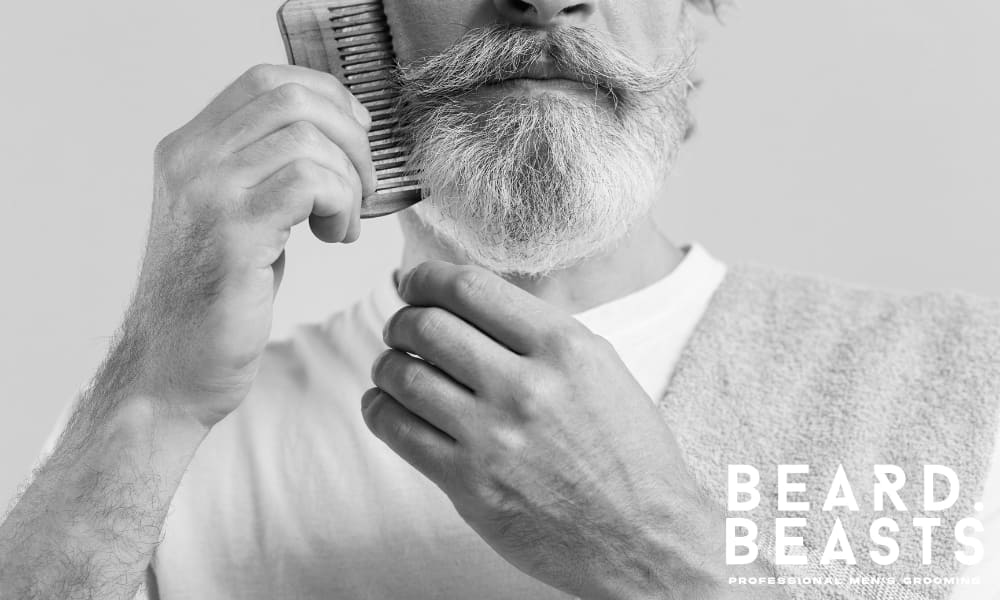
Stick to a Daily Care Routine
Wash your beard 2–3 times a week with a proper beard wash to keep it clean without stripping it dry. Apply beard oil every day to stay hydrated. Brush or comb it daily to train the hair and distribute oils evenly.
Master the Trim (Without Overdoing It)
Use a trimmer to clean up your neckline, cheek lines, and any stray bulk that ruins your shape. Scissors are great for tidying up flyaways. Trim just enough to maintain structure while letting the bulk keep growing.
Style to Match Your Length and Face Shape
Short beard? Keep it sharp and defined. Medium beard? Balance it with your jawline. Long beard? Maintain volume but control the edges. Styling isn’t about copying a trend—it’s about enhancing what makes your face stand out.
Protect Your Beard from Daily Damage
Use beard balm or leave-in conditioner to defend against the elements. Stay away from harsh soaps and heat-styling tools that dry out your beard and kill growth momentum.
In the journey of how to grow a full beard, building it is half the battle—maintaining it is what makes it legendary.
FAQs: Answering Popular Questions About Growing a Full Beard
If you’re navigating how to grow a full beard, these are the things most guys want to know before they hit the mirror or the breaking point. Let’s clear it up.
How long does it take to grow a full beard?
Every beard runs on its own clock—but most take 2 to 6 months to fill in fully.
Genetics, age, and how well you take care of your body all impact speed. Stick to your routine, stay patient, and give it time.
Can food or supplements help grow my beard faster?
They won’t work miracles—but yes, they can help.
Biotin, vitamin D, B-complex vitamins, zinc, and protein are key. A solid diet and a quality multivitamin can support healthier, stronger beard growth.
Does shaving make my beard grow back thicker?
Nope. That’s a myth that needs to die.
Shaving doesn’t change thickness or growth rate. It just makes the hair feel blunt as it comes back. Only genetics and care routines affect real growth.
What do I do about patchy spots?
Keep growing—and style around it.
Most patchiness improves with time. In the meantime, shape your beard to highlight your fuller areas. Brushing daily and sticking to your routine makes a big difference.
Is beard oil actually necessary?
If you want a healthy, itch-free, good-looking beard—yes.
Beard oil hydrates the skin, softens your hair, stops irritation, and helps your beard grow better and look fuller. Skip it, and your beard suffers.
What tools should every guy have for beard growth?
Start with a trimmer, a quality beard brush, beard oil, and a solid beard wash.
As your beard grows, add in scissors for shaping, balm for hold, and a comb for precision. Tools matter—don’t wing it with junk.
Can stress affect how fast my beard grows?
Absolutely—and not in a good way.
High stress lowers testosterone and restricts blood flow. That means slower growth and weaker hair. Manage your stress if you want your beard to stay on track.
If you’re committed to learning how to grow a full beard, the key is consistency and knowledge. Get the facts right, ignore the myths, and focus on what actually moves the needle.
Final Thoughts: How to Grow a Full Beard Starts with Consistency, Not Luck
Every guy wants a full, thick beard—but few are willing to commit to what it takes. This guide gave you the tools. Now it’s on you to follow through.
Dial in your routine. Fuel your body. Push through the awkward phases. Because learning how to grow a full beard isn’t about finding the perfect product—it’s about building discipline and showing up every day.
Your beard is earned. Grow it like you mean it.




